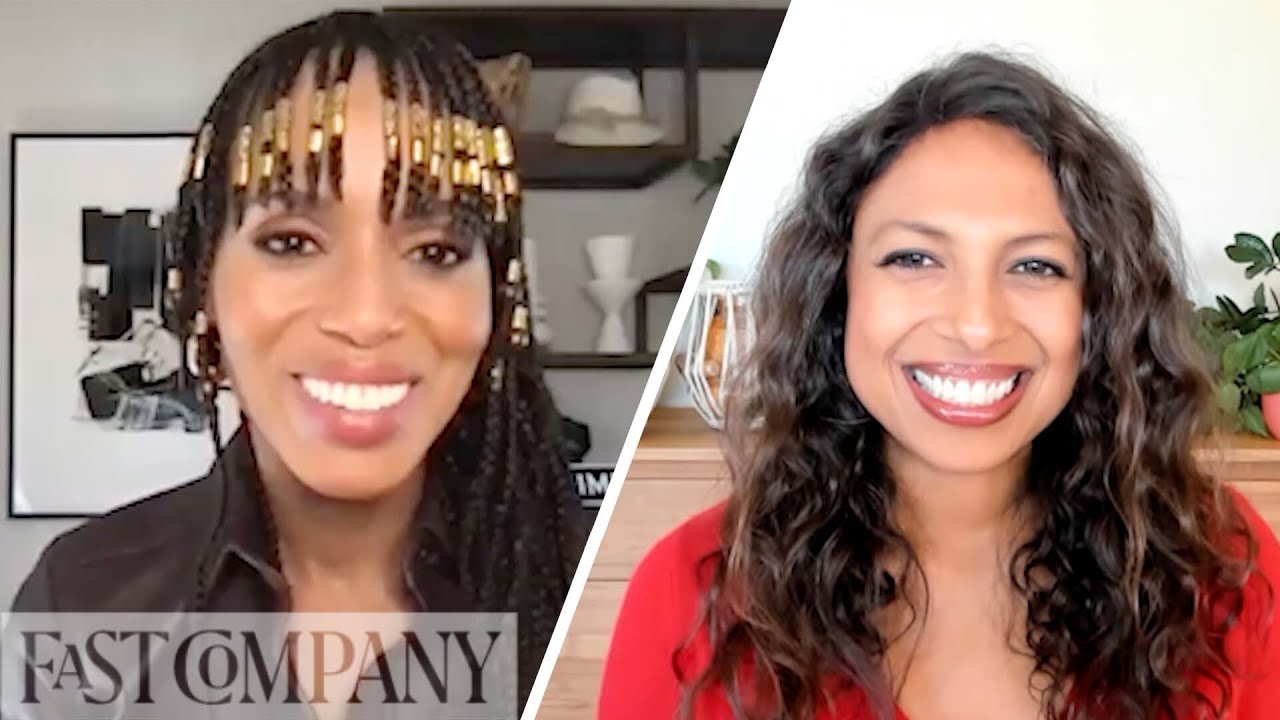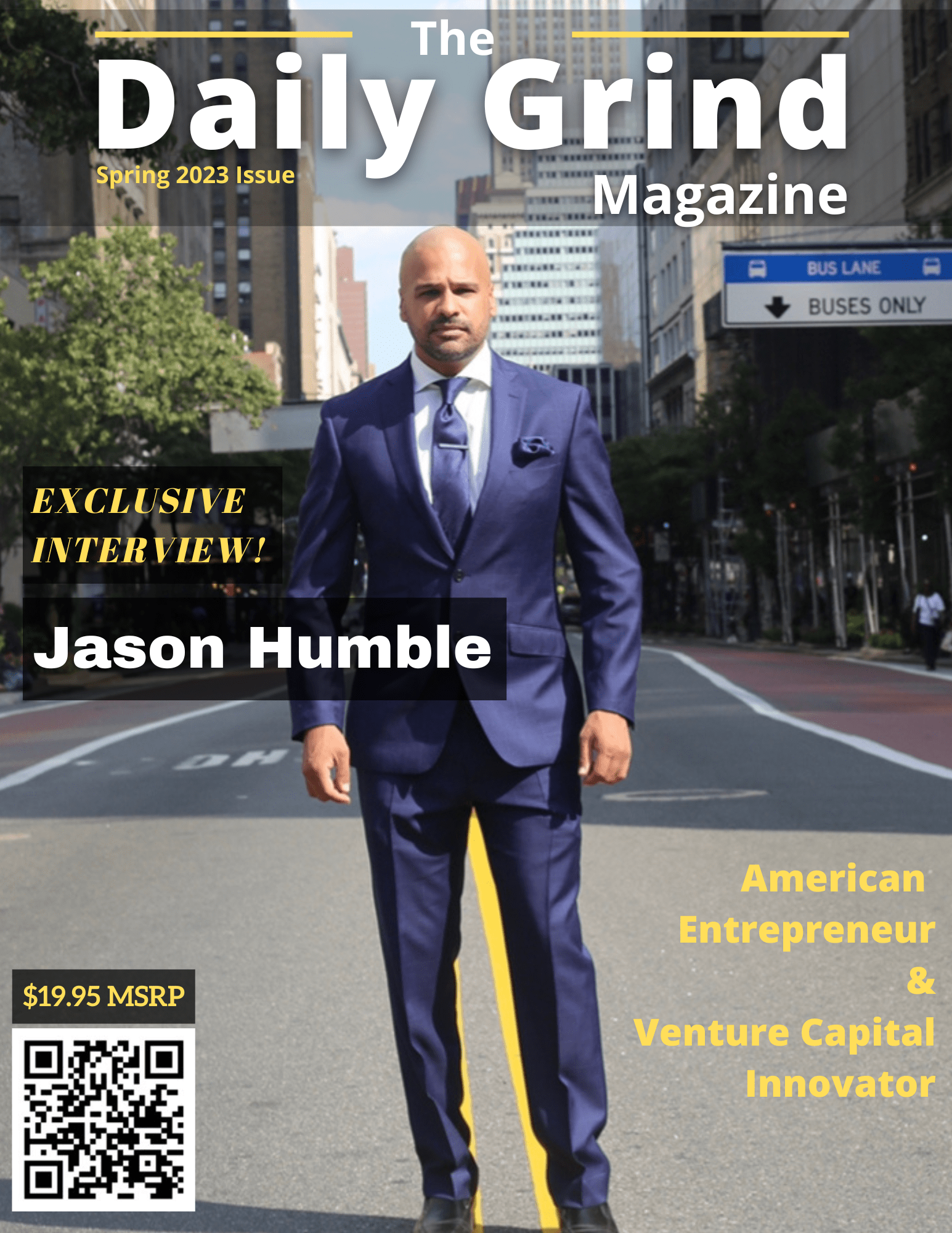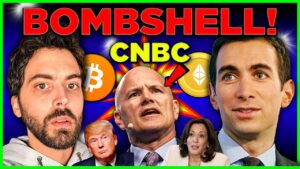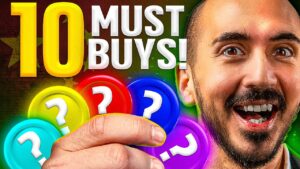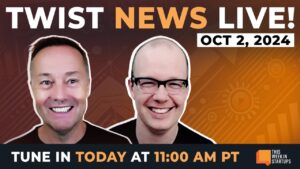– It really is something
that we’re so committed to, And my production company is sort of Reorienting ourselves around
the idea of otherness, Because we for so long
have taken for granted That certain people belong
at the center of the story. And a lot of it has to do with That straight white male
gaze and orientation. And what if we decide that
everyone is at the center Of their own story, That everyone is the hero
of their own journey? What do our stories look like When we have a commitment
to make that true? – I’m Prerna Gupta, a tech founder, And in this series, I’ll
explore how exceptional people Succeed by following their hero’s journey. Hi, Kerry, welcome to Hero’s Journey, And thanks for joining. – Thank you for having me. It’s lovely to be here. – You are a hero to so many young women Who have been inspired by your journey, Especially women of color like me. – Aw.
– When did you know That you wanted to be an actress, And what made you believe it’s possible? – I always did acting as an
extracurricular activity. I was a very dramatic child,
and so my mom very smartly, Very intelligently put me
in all kinds of after-school Theater company type programs, Just so I could get all those
emotions out of my system, But I really loved living in that space. I loved living in a space of imagination. I never thought that acting
would be a career for me. It really was a hobby, and
it wasn’t until I was doing
A summer conservatory program, So it was a program I was
really studying acting In a much more kind of full time way In between my sophomore and
junior years of undergrad. And I learned about actors unions And I hadn’t known that
there were unions for actors, But I come from a family, My mom’s a teacher, a retired professor, So I knew about teacher’s unions. And I knew that unions
were for working people. And I thought, okay, well, if
there’s a union for actors, It must mean that enough
people are able to kind of Make a living to do this as a career, Even though we never see them, Like on the cover of a magazine, Or maybe their name in lights, It still means like, there’s
a way to make a living Doing what I love doing, even
if I never become famous. And so that’s what made me
feel like I’m gonna go for it. ’Cause I didn’t wanna be famous, I just wanted to be able to spend my life Doing something that I
really, really loved to do. – That’s so beautiful. And I think speaks to why
you’re so good at it, you know, You’re such an incredibly talented actor And it’s because it really
came from a place of love And a place of passion and not necessarily For all of the rewards that come From being successful in it. – Well, I think it also came from a place Of wanting to work, you
know, not wanting to like, Sometimes I think people
imagine that what you do As an actor is you just
like sit around all day, And feel feelings while
people feed you grapes,
And fan you with feathers, like, and, (Kerry laughing) The truth is, you know,
at the height of Scandal, For example, I was often
working 16, 17 hour days, And you put in a lot of
time and effort, you know, That didn’t include the hour and a half That I would spend coming
home to memorize lines. Now I’m not saying that
my job is the hardest job In the world, I’m not a brain surgeon, I’m not a grave digger,
I’m not like, you know, If I don’t go to work, People might feel uninspired for a day, Like if my trash collector
doesn’t go to work, Like we all get sick. So like there are jobs that
are a lot more important Than mine, but I think that
when we come to something With the willingness to work
at it, to put our effort to, To be disciplined and committed, I think for me, the reward is greater, Because I’m not actually coming at it, As you said to receive accolades, ’cause I can never
control those accolades. What I can control is my
work ethic, my commitment And my discipline. – Wise words and so inspiring. So every great hero needs a mentor. Who have been key mentors
to you in your journey, And is it true that J-Lo
taught you how to dance? – (Kerry laughing) Yes, I could say, well, So I grew up in the same
neighborhood as Jennifer Lopez. We both grew up in the
Castle Hills Soundview area Of the Bronx, And we both went to the
same Boys and Girls Club, Boys and Girls Club was a
really, really important
Part of my childhood with two
parents who worked full time, And so the Boys and Girls Club
is where I went after school, And those hours between where
my public school education Hours those were done, But my parents couldn’t pick me up yet, I think my mom actually
lied when I was little too, ’cause I was one year too young To be able to join the
Boys and Girls Club, She was like, you’ll be fine. And I had older cousins
with me, so I was safe. But we had at the Kips Bay Boys
and Girls Club in the Bronx, We have this extraordinary dance teacher. His name was Larry Maldonado. He was just a dream. You know, he really encouraged all of us Black and Brown girls
to understand our worth, Our value, our beauty, You know, I always think arts education, We think about arts
education in the wrong ways, Often, I think, arts
education isn’t about creating The next J-Lo or the next
Kerry Washington, actually, Arts education is about creating The next best human beings to solve Our most important problems, right? Because at the Boys and Girls Club, I learned about showing up,
I learned about courage, I learned about teamwork,
I learned about curiosity. I learned about how to be on time, How to keep trying, perseverance, right? And those were the skills that
were being passed on to us From Larry, our dance teacher, And Jennifer was at the same club. Larry was one of the very
first people I knew as a kid In the 80s who was
impacted by HIV and aids.
And so when Larry found
himself in the hospital For weeks and months at a time, Jennifer was one of the older girls, And she stepped in to
teach some of our classes. So she’s, I don’t, you
know, she wasn’t like, She was more of a big
sister than a teacher, But she was, I did get to
study dance with Jennifer, And you would think I’d be
better at it because of it, But that’s no lack on her part, That’s definitely a lack on my part. (laughing in unison) But you know, I’ve had, I’ve been really lucky
to have all different Kinds of mentors in my life
because I think also, you know, When you grow and you have a curiosity To explore other areas of
interests, other verticals, Then it’s important to find Lots of different kinds of mentors. So I’ve been really lucky
in the social justice work That I do to have just phenomenal
mentors out in the world, People who are doing
just extraordinary work, Like, you know, there are
two people that come to mind, Always for me when I get this question, Just incredible, incredible leaders, Tram Nguyen, who is the Executive Director Of the New Virginia
Majority and Art Reyes, Who’s the Executive Director
of We the People in Michigan, And both of these people
are just unwavering In their dedication to the community. Just like so fully committed to honoring The voice of the people and
to transforming our democracy, To be really more inclusive. So when I come to the advocacy work, I always worry that I never
wanna make it about me.
You know, I don’t wanna go into
a neighborhood and say like, ”I’m Kerry Washington, ”you should vote because I tell you to” Or like ”I’m Kerry Washington, ”you should run for office,
because I played Olivia Pope, ”and I know what that means.” It’s like, no, it’s really
about coming to a community, And figuring out how to listen
to the voices on the ground And be guided by those voices, So leaders like Tram and like Art, They really do the work of
uplifting those local voices. They are those local heroes That I really go to again and again, To teach me how to be led
by the needs of a community. – That’s amazing, and I think
it, you know, it just shows, Like I said, I mean every
great hero needs a mentor, And just your ability to
seek out these mentors, And be open and learning from them, And your desire to continue
to learn in new areas. I mean, you know, you mentioned this, But you have used your platform To do some incredible social impact work, And in the areas of democracy,
voter participation, Racial justice, the most
important issues of our time. Tell us a little bit about
some of your recent efforts In this area and why this
work is so important to you. – Yeah, you know, it’s funny, Working with folks like Tram and Art Has been really helpful
to me, because even though I really try to come to that work In the spirit of service, right? Like what can I do for
you and your community? How can I uplift? How can I take some of
these eyeballs or ears
That are pointed toward me
and point them toward you? But of course, I get so much more Out of the relationship than they do, Because they have so much to teach, And so one of the really
exciting things that’s happened Is that working with Tram and
Art has really inspired me To launch a cohort, Which is in partnership with
the movement voter project, Which provides resources to
10 grassroots organizations All across the country
to help drive change In those communities. So together we designed a two-year-program To give organizations the
money, the resources, you know, Capital and other kinds of resources To build their storytelling
and their digital strategy, And visual communications
expertise, right? Like things that are more
in my core competency, But that I know these organizations need To better reach their audiences, And to scale their impact in the world. So figuring out like,
what are my superpowers, What are their superpowers, How do we help each other,
and more importantly, How do I help them? – Yeah, incredible, and I
think it’s really smart, You know, rather than saying, I think a lot of people
who go into philanthropy Kind of think about it’s all about me, And I’m doing this because
I want to make myself Seem like a great person, But your insight that there are all these Other organizations that
are doing amazing work, And what can I do to support
them, I think is so smart, And it’s cool to see just the leverage
That you’re able to have, It’s like being an investor
in the startup world, You know, a venture investor
says I’m gonna have leverage By investing in and supporting
all these other incredible Founders doing this work, And you’re sort of doing the same thing. – They are founders, right? I mean, these grassroots leaders, They truly are founders
that they’ve proven The most effective way to create change Is to start at the ground level. And so it’s been phenomenal
to learn from them To support them, to leverage my platform, To help them make a difference
’cause they are the founders Doing the work that’s
most important right now. – Yeah, absolutely, absolutely. So kind of going back to your, you know, Career and experience as an actor, You’ve played so many diverse roles, And play them so
convincingly, for example, Kay Amin in The Last King of Scotland, It was such a powerful
role, and you were amazing. Tell us a little bit about How you prepare for a role like that. What kind of research goes into it? You talked about showing
up and doing the work, You know, what is that work? I think a lot of us who
aren’t in your industry Don’t know that, you know, give us a peek Behind the curtain, What goes into it and how do
you learn to do a new accent? (laughing in unison) – Oh, it’s so funny. I mean, there’s lots of different ways
To approach building a character, And every character also
requires a different approach, I have found in my career, you know, There is really, I think
I hate to talk about Acting as an art sometimes, Because it makes it sound
so, I don’t know pretentious, But there is something artful to it, Meaning it’s not an exact science. You really have to be willing
to kind of play and experiment And be fluid and flexible
and curious and open-minded And committed and hungry. And you just, for me, I really try to build
as much truth in detail About who the person is, So that I can try to
step into those shoes. It’s like you have to make the shoes In order to walk in them. So making the shoes of the character Means understanding like who
they are, where they live, What they need, how they
talk, what they eat, Who are they close to,
what are their secrets, All of those things helped
me to sort of imagine myself, And lead my imagination into thinking That I could be somebody else
for small chunks of the day. I don’t want you to think
I actually go crazy. But those, you know, that’s
kind of the whimsical weirdness Of what we do is that it’s, There’s no exact science to it, But I’m constantly trying to
give myself enough information About who the character is, That I can suspend my
disbelief and hopefully yours. And learning an accent is
always really, really helpful. They’re always physical things
that I can do to help me Enter into a character,
Sometimes how I figure out who they are is How they walk, right? Like playing Anita Hill, for example, In Confirmation, Anita has Such a specific walk and posture. And it taught me a lot
about her to figure out How to embody that walk, Playing Kay Amin, the
accent taught me so much And it just helped me to find the rhythms Of how people speak in Uganda. So I did work with an accent coach, Actually first would have grown, I worked with the same
accent coach in the beginning ’cause we wanted to make sure That we were approaching
it in the same way, But then I just spent
as much time as I could With women in Uganda, you know, Getting my hair braided, going shopping, Making friends, spending
time with people’s family, Babysitting kids, like
just throwing myself Into the community to
try to pick up all those, The music of the language and
the nuances of the culture. – That’s so cool. So you hear, I mean,
you mentioned, you know, I don’t want you to think I go crazy When I’m preparing for these roles, And I’ve heard of some
actors that, you know, When they’re preparing, They just kind of become that
person for the period of time That they’re playing
that character, you know, Is that your approach, or do you really, Do you kind of go in and out in a day And once the role is over, Do you feel like, is it
different, you know, like,
Do you feel like, okay, It takes you some time to
kind of come back to center And come back to like
who you are at your core? – I would say yes to all of the above. (laughing in unison) I mean, I think one of
the interesting things Is that in earlier on in my career, I think I was much more
of a kind of method actor, Meaning I would throw
myself into a character, And there was very little distinction Between her reality and mine. I think I didn’t trust
myself as much as an artist, And so I really felt
like I had to keep her, The character with me all
the time, all the time, All the time. The biggest thing that changed
that was having a family. When I got married and
started having kids, I realized that there was
something more important Than my need to just be like
a crazy person all the time. And I started learning how
to create some boundaries Between myself and the work, I started to give myself
some real structures, And disciplines that would
let me enter into the work, And close out the work
at the end of the day, Because I didn’t want to be
like making dinner for my kids Crying about the thing I did the scene About three hours ago, right? I wanna be fully present
as a wife and mother, And I wanna be fully
present as an artist also. So it really does like a lot
of working women, working moms, It requires an extraordinary
amount of discipline to say, Like to my childcare folks, like, ”Hey, for the next hour or two, ”I’m gonna be in a scene where
I’m turning my phone off.
”If there’s an emergency,
call this number, ”or call my husband” And then as soon as this scene’s over, I turn my phone back on and say like, ”I’m back, how’s it going,
do you need me, great, ”okay, I’m gonna go back
into my scene” right? So that’s some discipline
on the parenting side, Which is really, really hard, ’cause I’m definitely one
of those mothers who’s like, I wanna do it all, be
it all, all the time. So I’m learning to have
some of those boundaries With my husband, with my children
has been really important. And on the other side, to
create rituals for myself For different characters,
it’s different things. There are certain characters
where the moment I take off The ring, I say like, I’m
now done playing her today, Put her in a box, sometimes
I say a prayer in my trailer And say like, I’m done now today. Sometimes it’s a little bit of meditation Where I enter the space
and exit the space, But I give myself markers
so that the work is the work And the family’s the family, And I can have some sanity in both spaces. But I will say when I’m
done with a character, There is a different kind of goodbye, ’cause as much as I create
those structures and rituals, They do live with me. They do live with me. They make me not crazy when I’m at home, But they’re still with me
in the shower, in the car, Wherever I am, they’re not
as loud as they used to be, But they’re still there. So when I finish a project, I do, I do find myself saying
goodbye to the character,
But I also am changed by
the characters that I play. I always feel like a
character comes into my life To teach me something or to
challenge me in some way, So a lot of how I say goodbye to a project Or sort of mark the completion, The closure of a project is to acknowledge What I’ve learned from that
character and from that piece, And then move on. – Really beautiful. So it has been amazing to watch
you progress in your career, You know, starting with playing
supporting roles in films, Like Save the Last Dance
to playing the wife Of male Black leads in films
like Last King of Scotland And Ray to ultimately
starring in your own show As a strong Black woman in Scandal. When you first started in your career, There were so few lead
roles played by Black women. It just didn’t really exist. But even then, did you have a dream, You know, of landing lead roles? And how did you make
it happen for yourself? – This is so funny because … I think as I said, I didn’t, It’s not that I wanted to
be like a famous actress, I didn’t want to be
like the lead in a film, Because I wanted to be
the most important person In the story. But I knew that I, as a woman,
and as a woman of color, As a Black woman in particular, That I was deserving of
having people like me Be at the center of our own stories. And the fact that in the
beginning of my career, I was often cast as the best friend, Started to feel problematic to me.
Not because I didn’t love working With these incredible actresses, You know, like Julia Styles, and … But it was like once I
played Meg Ryan’s best friend Who was like one of my heroes
of acting in this film, Very few people saw it
called Against the Ropes, But it was an extraordinary
experience for me To work with Meg, I was like, I don’t know that I need to play Anybody else’s best friend. It’s like, I’m not sure
that I need to play Anybody else’s best friend, And I’m not sure that
Black actresses need to be Relegated to the role of best friend. I think that we are deserving
of having our own friends, And being at the center
of our own stories. And again, that’s not to say That I haven’t had
extraordinary opportunities And I’ve always tried to really bring The fullest humanity
possible to playing the wife, Whether it’s Kay Amin or Della B in Ray, Or the best friend, if it’s
in Saving the Last Dance or, But at some point I was like, okay, I’m ready to be my own
character with my own story. And I was doing that in material That wasn’t written for me to do that, But I started to hunger
for the ability to do that, Not just for myself, but for my community. – So many of us relate to
what you’re saying, you know, I mean, obviously I’m in a
totally different industry, But I’ve felt the same way, It is a very male-dominated industry, Very White dominated industry, And it’s so hard when you don’t see people
Like you in those roles. You know, we don’t see
female CEOs of color, I mean, growing up, there were hardly any, But it’s like you said, You just focus on doing what you love, And you show up and you work hard, And eventually you
believe that you deserve To be in a place to
kind of change culture, And tell your own story. And it happens. – Well, I love that you’re
that you even are calling The podcast Hero’s Journey, right? Because that’s a paradigm, Obviously that we talk about
so much in my business, And it really is something
that we’re so committed to At my production company Is sort of reorienting
ourselves around the idea Of otherness because we
for so long have taken For granted that certain
people belong at the center Of the story, and a lot of it has to do With that straight white
male gaze, and orientation, And what if we decide that everyone Is at the center of their own story, That everyone is the hero
of their own journey, What do our stories look like
when we have a commitment To make that true? So I really love that you
have tapped into that idea With the podcast because it’s true. You know, I am like so proud and honored To be a supporting character In the story of my husband’s life, Like so deeply honored, And I’m happy to play the leading lady, Supporting actress in that story.
But I also have my own story
and he’s a supporting actor In mine and that’s the gift That in life we all
deserve to be at the center Of our own stories while uplifting And playing mentors or
challengers or, you know, Part of the ordinary world, In other people’s stories, right? Like my children on their hero’s journey. I am back in the, If we think about that
structure of the hero’s journey, I’m part of their ordinary world. I’m the world that
they’re gonna break from, And go beyond the village
to slay their own dragons. And I’m so proud to be that, I’m proud to play that supporting
character in their world, But they’re gonna do that best, They’re gonna slay their dragons best, If I set the example of slaying
my own dragons in my life. – Yeah. So well said, amazing. All right, so we are at our rapid fire Hero’s journey questions, There are four questions, ready? Question one. What’s your favorite book about a hero? It can be fiction or nonfiction. – I just finished reading
Tarana Burke’s memoir Unbound, And I just loved it,
she’s such a hero of mine. She’s the founder of the Me Too Movement, And she’s an extraordinary
leader and survivor, And she is a true hero on a true journey, And the book is so fantastic. I’m also biased because
she’s from the Bronx, And so I feel like, you
know, when you find a hero
Who’s from the same places that you are, It resonates in different ways, ’cause it gives me extra
courage to feel like I can be on my journey, but I just, She’s such an important person,
and an extraordinary writer. So that’s the book I’ll say today. – Cool. Question two, what’s your superfood? – My superfood is dark chocolate. Anything over like 70%, I’m
powerless over, I’m obsessed. It is my happy place, And my favorite chocolate brand
is this incredible company Called Hu chocolates, They have no refined
sugar and it’s organic, And vegan and they’re so,
they’re just delicious. I’m obsessed. – Question three, what’s your kryptonite? – Yeah, okay. My kryptonite, I think is … My kryptonite is avoidance
or, and procrastination. Those are the things that
are most dangerous for me Because I find that
they can be a little bit What’s the right word, you know, Avoidance and procrastination
become really dangerous For me because they build upon each other, And they can sort of turn into a problem That’s larger than the
problem you’re avoiding In the first place. So I really try to avoid
avoidance and procrastination. (laughing in unison) Very imperfectly, but I try. – Well, okay. This was supposed to be rapid
fire, but I just have to ask, You know, on the topic of procrastination,
I feel like sometimes as a
creative, it’s useful, you know, To like, ’cause you get some
inspiration to creative ideas, That you don’t know that you’ll get Unless you procrastinate,
but, which I’m so … Maybe there’s a part of you
that needs that sometimes. – No, it’s true. I have seen some of that research. So I do, I try to be really
intentional about, like, What am I doing in this moment, If it’s that I’m looking
for more inspiration, Then to let go of the
guilt cycle about it, But to also be realistic with myself, And look at a calendar and say like, When is the latest moment
that I can work on this Without driving myself crazy
and creating a problem? – Yeah, yeah, absolutely. Question four. What’s your secret weapon? – I have to say my secret
weapon is my family, My husband and kids, my
parents, like my family, The people I’m closest
to are my secret weapon, Because they really keep
things in perspective for me, I think that’s one of the
gifts of the pandemic, Which it’s been such a challenging time For so many people, Such a really tragic time in
the history of our Planet. But one of the things
that I’ve walked away with Is a deeper appreciation
for having my family, And for being able to be with them, And to walk through life with them. So, you know, whenever
things in work in particular In the world feel
frustrating, overwhelming, Being with my family puts
it in perspective, for sure. – That is the best secret weapon
And the best answer we’ve
had on that question. You are amazing, Kerry Washington. Thank you so much for your
time, for everything that you do To help our democracy, to
inspire women all over the world. It’s such an honor to speak with you. Thank you so much. – Well, thank you so much, I really — (electronic music ending)
